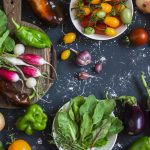Understanding the 4 phases of your period – and what to do in each
Although our society has changed in the last 2500 years the natural cycles that govern our body have not. A foundational principle of Traditional Chinese Medicine is to understand these natural cycles and adapt your behavior to take advantage of them, enabling you avoid future imbalances and treat any that may occur, there by assisting you to avoid disease and increase your vitality and longevity.
From a Chinese medical perspective a women’s menstrual cycle can be used diagnostically to assess not only your gynecological health (menstrual irregularities, fertility), but also your overall state of health. People have such busy lifestyles these days that you may not be ‘tuned in’ to the needs of your body during your menstrual cycle. A healthy menstrual cycle requires that your Qi, blood, Jing (reproductive essence), and yin/yang are adequate, and that there is sufficient, unimpeded movement of Qi and blood at the appropriate times of the cycle.
In Chinese medicine the menstrual cycle is broken into two halves and four phases, and at different times within these four phases you can learn become more aware of what your body requires by adapting your lifestyle to the rhythm of the cycle which can result in more balanced hormones, better-regulated menstrual cycle and improved fertility. This also has the added benefit of improving your overall health and wellbeing.
The first phase of the menstrual cycle is from day one of menstruation until ovulation, known as follicular phase and in Chinese medical terms this is known as the yin phase. The second phase goes from ovulation until day one of menstruation, the luteal phase and in Chinese medical terms this is the yang phase of the cycle.
The yin part of the cycle is then broken into two phases:
PHASE ONE: MENSTRATION
The main principle at this time is to move and begin to nourish blood and yin.
This part of the phase is when blood is discharged and begins to regenerate lasting about 4-5 days. During this phase the body discharges accumulated blood to make way for the formation of new blood. During this phase the blood needs to move downwards smoothly and unimpeded and then towards the end of the bleed, the blood and yin begin to build.
What to do
To assist this process it is important to stay hydrated, keep warm and avoid over strenuous exercise, instead do gentle light exercise.
Diet
This phase it is important to eat food that stimulate the circulatory system, stimulate digestion and aid detoxification. Incorporate blood-moving foods like turmeric, eggplant, kelp and seaweeds into your cooking. Alkalize the system with the help of cider vinegar in warm water.
Avoid cold raw foods or drinks and fatty foods as they can impede the blood flow and create stagnation. Instead have cooked warming foods like bone broth soups and stews, good quality organic red meats, and foods like tempeh, beetroot, eggs, legumes, dark leafy green vegetables as these all help nourish the blood.
Useful Chinese Herbal Formulas:
Tao Hong Se Wu Tang, Xue Fu Zhu Yu Tang, Wen Jing Tang, Gui Zhi Fu Ling Tang
PHASE TWO: POST MENSTRUAL PHASE
The main principle here is to nourish and build blood and yin.
This phase starts from about seven days after menstruation begins until ovulation. At this stage blood continues to be built along with yin essence and qi, both of which are a part of blood. This is when the endometrium is regenerated, the follicles develop and towards the end of this phase clear stretchy cervical mucus is produced, leading to ovulation. During this phase women’s bodies are relatively qi and blood deficient, due to the loss of menstruation blood.
In our modern busy lifestyles this phase is an important time to rebuild blood and yin by allowing time for rest and regeneration.
Yin essence is cooling, nourishing and moistening. It is quite restful energy and it represents the ‘elixir of youth’ which is consumed throughout life, its decline is hastened by busy stressful lifestyles. Yin essence is important in creating moistening fluids for the whole body, it moistens and nourishes the organs and tissues. In the uterus it is important for conception and the nourishment and the development of follicles.
People who are yin deficient tend to be hot and dry internally, they tend to be restless, prone to anxiety, they move quickly and are very alert people.
Yin is damaged by overwork; excess thinking and stress, excess stimulating foods in the diet, rushed eating, lack of/over exercising, or inadequate sleep. It can also be damaged by excess sexual activity and too many pregnancy, IVF cycles or terminations,
WHAT TO DO:
Rest
Yin is depleted by over stimulated, rushed lifestyles. Make space for stillness in your life by doing restful and regenerating activities that nurture and nourish yin and blood. Try to consciously be less busy, watch less television and spend less time with your computer or phone – read a book, relax with friends, go to bed earlier. Sleep is important for restoring and recuperating Qi, blood and yin/yang. We need our ‘down’ time, our space to regenerate.
Activities
Exercise: Over-vigorous exercise depletes blood and yin. If you tend to be stressed and deficient then activities like meditation, tai chi, restorative yoga or regular easy paced walking in a natural environment is advised, this sort of exercise fosters yin and helps us recharge and rebuild internal energy. If you tend to be over weight more vigorous activity is recommended. Most importantly enjoy whatever activity you choose.
Diet
All food should be fresh and in season.
Eat three meals per day, with healthy snacks in between
Stop all processed foods like cakes, white breads, cereals (corn flakes)
Limit sugar and carbohydrates
Avoid fatty fried foods
Do not have flavoured food and drinks
Refrain from drinking water with your food but drink plenty of water away from meals.
Eat high quality protein, free range (where possible], once per day.
Use plenty of water when cooking. soups, bone broths, stews, steaming.
Eat lots of vegetables and some fruit.
Try not to eat when stressed or upset. Eat slowly, chew your food well, and do not over eat.
Beneficial Foods for yin and blood
Protein: eggs, fish, chicken, tofu, bone marrow soups, seeds and nuts especially black sesame, black beans, kidney beans.
Vegetables: string beans, asparagus, seaweeds, algae, nettles, green leafy vegetables.
Fruits: blackberries, blueberries, mulberries, coconut.
Blood and yin nourishing foods are nutrient rich and encourage fluid and moisture levels.
Restrict
Alcohol, coffee, recreational stimulants, junk food, heavily fried food, nicotine, excess sugar.
Useful Chinese Herbal Formulas:
Ba Zen Tang, Shi Quan Da Bu Tang, Gui Pi Tang, Liu Wei Di Hang Tang, Zuo Gui Tang.
PHASE 3: OVULATION- SWITCH FROM YIN TO YANG
The principle here is movement and warmth.
At this stage of the menstrual cycle yin and fluids have built to a climax, if there is a good solid base of blood then good quality, stretchy fertile mucus appears, this is when the yin energy begins to transform into yang energy. Yang energy is the counter part of yin – yin is cool and moistening while yang is active, warm and drying. This warmth encourages the dilation and blood flow so that the egg can be released from the follicles and travel smoothly down the fallopian tube unobstructed. During this phase of the menstrual cycle it is important to promote the even switch from yin to yang.
WHAT TO DO:
Keep warm
Do exercises that stretch the hips and move the pelvic area, to help increase the blood flow to this area.
Avoid stress; be conscious of creating stability and contentment in your life. Mental instability/agitation can have a huge impact on the switch from yin to yang that can lead to infertility if trying to conceive or premenstrual issues.
Diet
Eat less. Plenty for fresh fruit and vegetables.
Eat light mildly spicy foods and foods that help mobilize fluids and prevent congestion things like ginger, onion, garlic and leeks, cardamom, cumin, or basil in your cooking.
Avoid
Cold drinks and raw food e.g. salads, raw juices, cold beer.
Reduce sugar and dairy.
Avoid fatty rich foods as these can cause congestion and fluid stagnation.
Low carbohydrates.
Useful Chinese Herbal Formulas:
Xiao Yao San, You Gui Tang, Liu Wei Di Huang Tang, Zuo Gui Tang, Gui Zhi Fu Ling Tang, Shao Fu Zhu Yu Tang.
PHASE FOUR: PREMENSTRURAL OR IMPLANTATION
The main principle is to continue to promote yang or move Qi and blood.
This phase of the cycle begins about one week post ovulation and yang energy has reached it peak. This phase of the cycle continues to be about warmth, the movement of Qi and the promotion of yang, This Yang essence is the motivating force for all transformations in the body, it is warming and enlivening, when you have ample supple of yang you have plenty of energy to work and play, Yang essence is most important for positive pregnancy outcomes. – it is the impetus that begins a human life, it is the energy that holds a pregnancy in place.
If not trying to conceive, the raising yang Qi begins to move Qi and blood in preparation for menstruation.
A yang deficient person tends to be lethargic, lack assertiveness, gains weight easily, poor digestion, tendency to puffiness, mental processes are slow, feel the cold easily, lack libido, suffer lower back pain or are prone to depression.
Yang deficiency can be a constitutional weakness. It can come from working too hard, a significant illness (e.g. thyroid disease), excess stress or lack of sleep, which depletes the yin energy, leading to a yin deficiency turning into a yang deficiency thus creating a vicious circle. Living and working in cold damp environments or eating and drinking too many cold foods or drink can also damage yang.
WHAT TO DO:
Activities
YOU NEED TO MOVE.
If not trying to get pregnant then intense exercise is appropriate a week out from your period to help promote the movement of Qi and blood and smooth out mood swing and lethargy. Brisk walking for 30 minutes in a green environment, bike riding.
Diet
All food cooked and warm, cooking food increases yang Qi in the foods.
Long slow cooking, stew broths, soups, use vegetables like pumpkin, leek, onion, sweet potato, carrot, corn, parsnips, beans, peas, yams, quinoa, chicken, salmon.
Steamed vegetables like broccoli, beans.
Add spices like ginger, cinnamon, cayenne, nutmeg, cloves, rosemary,
Avoid: raw fruit and vegetables, cold drinks, too much sweet food, dairy, alcohol, coffee.
Reduce stress.
Useful Chinese Herbal Formulas:
Xiao Yao San, Xiao Chaihu Tang, Dang Gui Si Ni Tang, Wuzhuyu Tang, Er Xian Tang, You Gui Tang, Jinq Gui Shen Qi Tan.
The busyness of modern life takes us away from connecting with life’s natural transistitions leading to unnecessary ill health. By slowing down and becoming more aware of self care during the menstrual cycle will move you towards better health and vitality and prevention of future illnesses.
“It is man himself, not heaven, who governs his life, and he who abuses himself dies young, while he who takes good care of himself enjoys a long life”. Gao Lian, Ming dynasty.
QUOTE REFERENCE
“Health Preservation and Rehabilitation,” Zhang Enqined.,Publishing House of Shanghai College of Traditional Chinese Medicine, 1998.



